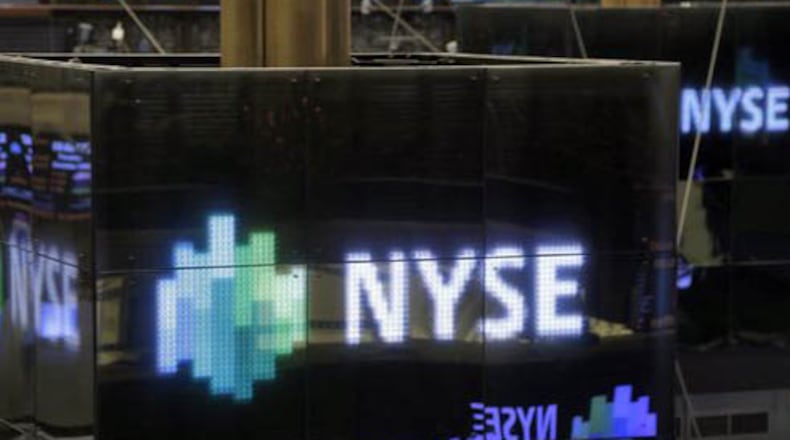Taking ownership of the New York Stock Exchange was a huge coup for Atlanta-based Intercontinental Exchange when it bought the world’s largest stock bazaar two years ago.
On Wednesday that trophy acquisition became a huge headache when the NYSE went dark for a big chunk of the trading day.
The exchange reopened about 3:15 p.m., after a nearly four-hour shutdown that Intercontinental Exchange, also known as ICE, said was due to a technical problem, not a cyber attack.
The NYSE standstill came the same day that computer problems also hit United Airlines, grounding its fleet early in the day, and the Web site of the Wall Street Journal.
A White House spokesman said President Obama was briefed on the NYSE and United troubles, but he added there was “no indication that malicious actors are involved in these technology issues.” United later blamed a router problem that affected its network.
At the NYSE, trading was suspended at 11:32 a.m. after a software upgrade malfunctioned, according to the New York Times, which cited unnamed floor traders. In an email late Wednesday, an NYSE spokesperson said, “The root cause was determined to be a configuration issue.”
FBI director James Comey, appearing before a Senate panel in Washington, speculated that the Wall Street Journal’s Web site — whose home page went down about the time of the trading halt — might have been overwhelmed by traffic from people trying to find out what was going on at the NYSE.
Local money managers and Atlanta companies whose shares are listed on the NYSE said the shutdown didn’t affect their operations. One reason is that traders could also buy or sell NYSE-listed shares on about a dozen other stock exchanges and trading markets that have proliferated over the years, a trend known as fragmentation.
“This is probably the upside of the fragmentation of the market,” said Kevin Cronin, global head of trading for Invesco, an Atlanta-based money management firm with $812 billion in assets. Invesco’s traders were quickly able to adjust by switching to other exchanges such as Nasdaq and BATS, an electronic exchange, he said.
“Really, it was not that big a deal,” he said.
Still, the NYSE needs to determine why the rare disruption happened, so similar problems can be avoided in the future, he said.
“It’s not a good day for the exchange,” he said. “They’ve got to be held to a higher standard.”
If it didn’t matter that much for traders, the glitch was a black eye for ICE. It could draw an inquiry from federal regulators into whether the NYSE has adequate emergency backup systems, some traders said.
“They’re going to have some explaining to do,” said Joe Saluzzi, a partner at brokerage firm Themis Trading, and author of “Broken Markets,” a 2012 book on growing challenges in Wall Street’s securities exchanges.
According to U.S. Securities and Exchange rules, Saluzzi said, the NYSE and other exchanges must have adequate backup and recovery systems to avoid extended shutdowns. Wednesday’s disruption, he said, was “pretty bad because it took so long (to recover). It tells you that the backup systems weren’t there.”
The problem would have been worse, said Saluzzi, if trading hadn’t resumed late in the day.
That’s because opening and closing NYSE prices are used as official benchmark prices by most mutual fund companies and other big investors when they calculate the values of investors’ holdings.
Other local players were nonplussed.
Auto parts retailer Genuine Parts said the impact on its stock price was probably negligible. Trading volume “will likely be lower than average, but that may be a good thing considering the volatility in today’s trading,” said spokesman Sid Jones.
Delta Air Lines spokesman Trebor Banstetter said the Atlanta carrier felt little effect on its stock price and none on its operations. “While we’re an NYSE-listed stock, we continued to be traded through other platforms today,” he said.
Georgia’s state pension system, which manages much of its own investments, said it traded on other markets Wednesday.
“Obviously you don’t want a shutdown,” said Thomas Horkan, assistant chief investment officer. “We’re long-term investors, so a one-day glitch on one exchange doesn’t really bother us.”
ICE’s $11 billion acquisition of NYSE Euronext was seen as an audacious move by the trading business, founded in 2000. It has been a Wall Street darling; its own shares have risen by roughly 70 percent in three years. ICE started as an electronic trading network for energy futures, but over the years added exchanges for crude oil, sugar and other commodities before the NYSE deal.
Leon Stafford contributed to this report.
About the Author
Keep Reading
The Latest
Featured


